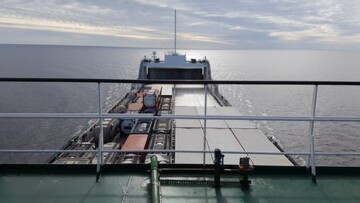Hazard Analysis Process for Autonomous Vessels

This report introduces a systemic process for an initial hazard analysis in the operative context of autonomous vessels. The process facilitates executing an initial analysis of safety hazards in the earliest design phase before the planning of ship design, materials, structures, components, systems and the services linked to the functioning of an autonomous vessel. The process attempts to produce information to make the systematic integration of safety controls that need to be implemented in an initial safety management strategy.
In this report, the process is applied to analyse the safety hazards in the foreseen functioning of two concepts of autonomous ferries operating in urban waterways in and near the city of Turku in Finland. The process first identifies the main type of accidents and hazards in the operational context of these ferries.
"The process first identifies the main type of accidents and hazards in the operational context of these ferries."
It then proposes high‐level safety controls to mitigate the hazards and prevent these accidents. The controls are subsequently used as a basis for developing an initial safety management strategy for autonomous ferries and their operational system. This provides a systematic representation of safety
controls in the operative context of autonomous ferries.
The full process is composed of five different steps to elaborate a systematic analysis of hazards and to define safety controls for mitigating and preventing the identified hazards. These controls are the basis of the initial safety management strategy of autonomous vessels and their operational system. This report
was done as part of the ÄlyVESI – Smart City Ferries research, development and innovation project.
Smart City Ferries, the ÄlyVESI project, was a conceptualisation, product development and innovation project realised by cities, businesses and universities 1.10.2016 – 31.5.2018. The project explored, developed and tested new technologies and intelligent urban waterborne traffic solutions and services. Novia University of Applied Sciences, Turku University of Applied Sciences, Aalto University and the City of Turku carried out the project in co‐operation. The project was funded by the 6Aika‐program of the European Regional Development Fund. In addition, the project was funded by the Finnish Transport Safety
Agency and the cities of Helsinki and Espoo.
Läs hela rapporten här:
https://www.novia.fi/forskning/oppen-vetenskap/publikationsguide/novias-publikationsserie/serie-r-rapporter
Bild: pexels.com